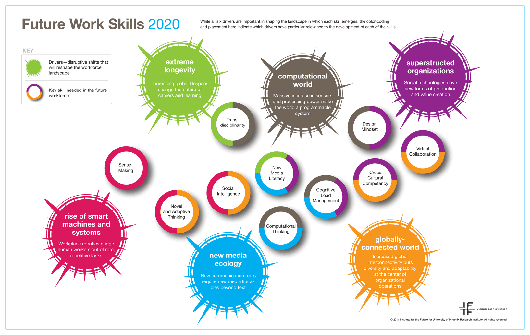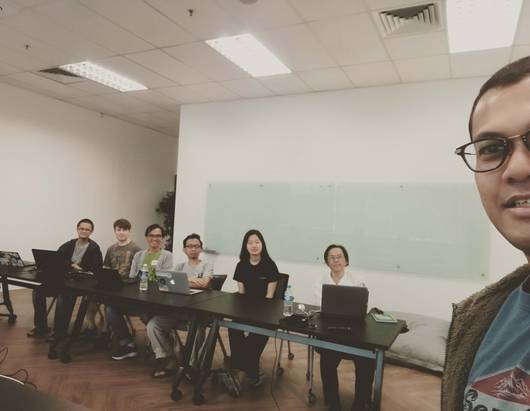We published last week here on the blog the first 5 skills that a future generation of workers should acquire before 2020. If you missed it, please go there and check part 1 before moving forward.
Today we’ll talk about the remaining 5 skills that complement the full set of knowledge you’ll need to be part of a new ecosystem of work. We’re less than 2 years from 2020, so we all better hurry!
 “Less Minority Report, more self-development”
“Less Minority Report, more self-development”
- New-media literacy: The explosion in user-generated media created by the mainstream access and easy-to-use interfaces of videos, blogs, and podcasts already dominated our social lives. This is overflowing to the work environment as well, and the future worker will have to become fluent in such formats, both as knowing how to read and interpret that message as well as creating their own visual presentations with the same ease as regular text documents and PowerPoint presentations.
7: Transdisciplinarity: Beyond putting together teams with different specialized skills to contribute, the future worker will need to have a good grasp on other disciplines. This is the so-called “T-shaped” worker: the one who brings a deep understanding of at least one field but have the capacity to discuss creatively in other languages. This is all a consequence of the complexities of our current problems – think of issues such as global warming, overpopulation, and even social media -, which all have in common is the need of different specialties to be fully understood.
8: Design mindset: A design approach to our work basically means thinking of how the presentation affects our cognitive experiences and, therefore, our behavior. It’s a mix of attractive composition with bumpless functionality that propels our production time forward more effectively, something that ever more workers will need to bring to the table.
9: Cognitive load management: With the capacity of finding endless streams of information across dozens of different formats, it comes to the problem of cognitive overload. The next generation of workers will need to develop their own techniques to perfectly filter and discriminate the importance of the supplied information in a time-efficient matter.
10: Virtual collaboration: Basically, the future worker will have to work productively, drive engagement, and demonstrate presence as a member of a virtual team. The remote communication environment presents a different set of problems than the physical office space, and we need different strategies to compose a healthy virtual collaboration workflow. Gaming features have been prominently adapted to this with features such as immediate feedback, clear objectives, and a staged series of challenges that impact participation and motivation.
So, are you ready for the future work environment? Tell us in the comments below which of those 10 skills you think you need to work harder.



